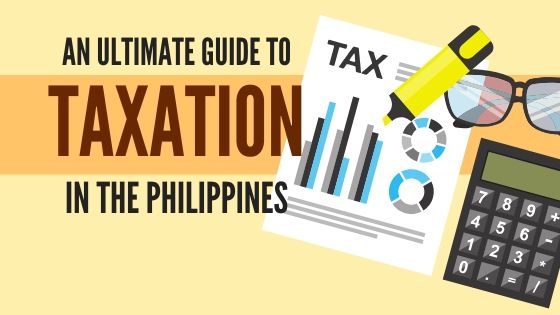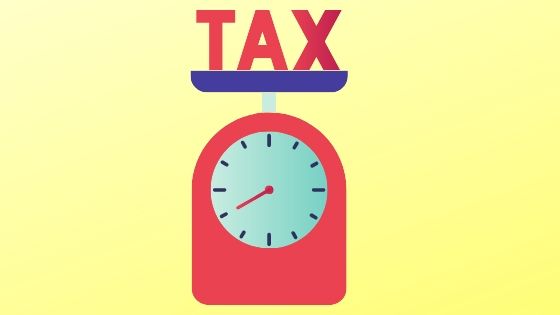An Ultimate Guide to Philippine Tax: Types, Computations, and Filing Procedures

This article has been reviewed and edited by Miguel Dar, a CPA and an experienced tax consultant who specializes in tax audits.
Like death, taxes are inescapable.
Whether we like it or not, paying taxes will follow each of us from cradle to grave. Even if you aren’t sure about why you have to pay a certain tax, or if the taxes you paid—your hard-earned money—will be used for government projects properly.
Speaking of which, tax collection is the government’s way to fund various basic services such as health care, education, and livelihood, as well as public structures such as roads, bridges, and school buildings.
It’s important to know the different taxes you’re required to pay, so you can account for them in your budget and avoid penalties for late payment or non-payment.
This Philippine tax guide discusses everything taxpayers need to know about taxes– from the TIN and its role in taxation to different tax forms and how to pay taxes.
Disclaimer: This article is for general information only and is not substitute for professional advice.
Table of Contents
- Taxation Basics: BIR Registration and Getting Your TIN Card
- What Are the Different Types of Taxes in the Philippines?
- How to Compute Income Tax in the Philippines
- How To File Income Tax Return in the Philippines
- Frequently Asked Questions
- 1. I need to transfer from my current RDO (Revenue District Office) to a new one. How?
- 2. I recently got married/annulled. How can I update my BIR registration information with my new civil status and name?
- 3. How can I change/correct my registered name/business name in BIR?
- 4. My business has been closed permanently. How can I de-register it from the BIR records?
- 5. How can I know my current RDO Code?
- 6. How can I know the RDO Code of the place/BIR office where I will transfer my tax records?
- 7. What are the different ways I can pay my income tax?
- 8. I’m a freelancer. Do I need to pay taxes? If so, how?
- 9. I need an ITR to apply for a loan/visa/credit card but I’m a freelancer. How can I get one?
- 10. Who are exempted from paying income tax? How can a tax-exempt individual/institution apply for a certificate of tax exemption?
- 11. What is BIR Form 2303 and why is it important for businesses?
- 12. What is tax accounting? What makes taxation different from accounting?
- 13. What is the difference between a one-person company and sole proprietorship? Which business classification should I choose?
- 14. Can I claim foreign tax credit in the Philippines? How?
- 15. How can I know which income is taxable and which one is not taxable in the Philippines?
- References
Taxation Basics: BIR Registration and Getting Your TIN Card
1. How to Get Taxpayer Identification Number (TIN)
Before you can become a taxpayer in the Philippines, you need to register with the Bureau of Internal Revenue (BIR) which will then assign you a permanent, system-generated Taxpayer Identification Number or TIN.
TIN is assigned to each taxpayer, whether you’re an individual or a corporation, and is required each time you transact with the BIR. There are two ways to get a TIN: Either through walk-in registration which requires the use of tax forms or online registration via the BIR eReg website.
a. How to Get a TIN Using BIR Tax Forms (Walk-in Registration)
If you belong to any of the following, simply click the link to your category and follow the instructions on how you can register and obtain your TIN:
- Self-Employed (Single Proprietor or Professional), Mixed-income Individual, Non-Resident Alien Engaged in Trade/Business; Estate and Trust
- Employees (Local or Foreigner) Earning Purely Compensation Income (Salary)
- Corporations, Partnerships (Taxable/Non-Taxable), Including GAIs, LGUs, Cooperatives, and Associations
- One-Time Taxpayer (Individuals Who Are Paying Donor’s Tax, Estate Tax, Capital Gains Tax, etc.) and Person Registering Under E.O. 98 (Securing a TIN to be Able to Transact with Any Government Office)
b. How to Get a TIN Using the BIR eReg Website (Online Registration)
The BIR eRegistration (eReg) system is an online registration service available only to employers or corporate taxpayers registered with the BIR who want to secure TINs for their newly-hired employees who were never issued a TIN number before.
2. How to Verify TIN If It Has Been Lost or Forgotten
This guide shares 5 easy ways to recover one’s TIN (Taxpayer Identification Number) which, for some reason, has been lost or forgotten.
Since TIN is permanent, you can’t apply for another once the need arises, hence the need for this article that will help you recover what already belongs to you.
3. How to Get TIN ID Card in the Philippines
After getting your TIN, the next step would be to obtain your TIN ID, also known as simply TIN Card.
This identification card, which usually comes in the form of thin rectangular cardboard with the BIR logo, can be used to apply for other government-issued IDs like the police clearance, NBI clearance, and postal ID.
What Are the Different Types of Taxes in the Philippines?
Taxes in the Philippines are classified into two basic types: national taxes and local taxes.
National taxes are paid to the national government through the BIR. Meanwhile, local taxes are paid to the Treasury Office of the city hall, municipal hall, or provincial capitol of the taxpayer’s home, office, or business location.
Related: What are the different types of taxpayer in the Philippines?
1. National taxes
a. Capital gains tax

A 6% Capital Gains Tax is imposed on the presumed gain from the sale of real property located in the Philippines which is classified as a capital asset, based on the gross selling price, the BIR zonal valuation or the assessed value of the property, whichever is the highest.
For example, if you’re selling your house for Php 1 million to buy or construct a new one, the capital gains tax is Php 60,000. However, if the property’s FMV (fair market value) is higher at Php 1.5 million, the tax you need to pay is Php 90,000.
Paying the capital gains tax is also required when you sell shares of stocks in a non-listed Philippine corporation that’s not traded through the Philippine Stock Exchange. The tax rate on the sale of non-listed shares is 15% for individuals and domestic corporations or 5% to 10% for foreign corporations.
Learn More: How to Compute, File, and Pay Capital Gains Tax in the Philippines: An Ultimate Guide
b. Documentary stamp tax

The documentary stamp tax (DST) is a tax on loan agreements/contracts, promissory notes, powers of attorney, deeds of sale of real property, life insurance policies, and other documents that prove the sale, acceptance, assignment, or transfer of a property, rights, or obligation.
This tax is paid by the person who makes, issues, signs, or accepts the document. DST rates vary per document or transaction and are either fixed or based on the value of the document.
For example, getting approved for a bank loan means you’ll be paying a DST of Php 1.50 per Php 200 of the loan amount. The lender deducts the DST payment from your loan proceeds. You won’t be charged this tax, though, if the value of your loan is Php 250,000 or less1.
c. Donor’s tax

Gifts and donations worth over Php 250,000 are taxed in the Philippines. Taxable gifts include cash, relief goods, and real and personal properties2.
Paid by the donor (not by the donation recipient or donee), the donor’s tax is 6% of the fair market value (FMV) of total net gifts in excess of the Php 250,000 threshold for tax-exempt gifts during the calendar year3.
The donor’s tax rate applies regardless of the donor’s relationship with the donee, whether the donee is a relative or a stranger.
For example, you give a mortgaged condo unit as a gift to your sibling who will be the one to pay off the loan on the mortgage. The tax you’ll pay is the FMV of the property minus the loan amount that your sibling will assume.
Additionally, when donating real property, you’re also required to pay the DST of Php 15 per Php 1,000 of the property’s value.
Exempted from the donor’s tax payment are gifts or donations to any of these entities4:
- National government
- Non-profit educational, religious, and charitable institutions
- BIR-accredited NGOs
- Entities considered tax-exempt under special laws (i.e., Philippine Red Cross, Girl Scouts of the Philippines, etc.)
d. Estate tax

The death of a loved one comes with not only emotional pain but also a financial burden to the ones left behind through the estate tax.
For example, if you’re a legal heir or beneficiary of a deceased person, you’re required to pay the 6% estate tax based on the value of your inheritance (including money and properties) less allowable deductions before it’s transferred to your name.
The standard deduction from the gross estate (the total assets a beneficiary is entitled to) is Php 5 million. This means if you’ll inherit that amount or less, you won’t have to pay any estate tax. However, you still need to file the Estate Tax Return (BIR Form 1801) within a year from your loved one’s death.
There’s also a deduction for the family home of up to Php 10 million from the gross estate.
If you don’t have enough cash, you may extend the time for payment of such tax or any part thereof not to exceed five (5) years, in case the estate is settled through the courts, or two (2) years in case the estate is settled extrajudicially5.
Excluded from estate tax computation are death benefits from GSIS and SSS, life insurance benefits for irrevocable beneficiaries, and separate property of the surviving spouse, among others.
e. Excise tax

The excise tax applies to goods produced, imported, or sold in the Philippines. Manufacturers, producers, importers, and sellers file and pay the excise tax. But because it’s an indirect tax, the excise tax is passed on to consumers as part of the selling price.
Excise tax rates vary per taxable item.
| Taxable Item | Excise Tax Rate |
| Vehicle | 4% to 50% based on selling price |
| Petroleum products (e.g., unleaded gasoline, LPG, kerosene, etc.) | Php 3 to Php 10 per liter/kg |
| Alcohol products | 20% |
| Cigarettes | Php 37.50 per pack (starting January 1, 2020) / Php 40 (starting January 1, 2022) / Increased by 4% every year after 2022 |
| Sweetened beverages (e.g., soft drinks, energy drinks, sports drinks, sweetened juice, and tea, etc.) | Php 6 / Php 12 per liter |
| Non-essential goods (e.g., perfumes, jewelry, yachts, etc.) | 20% |
| Non-essential services (e.g., invasive cosmetic procedures) | 5% |
| Mineral products (e.g., coal, coke, gold, copper, etc.) | For coal and coke: Php 150 per metric ton For all other taxable minerals: 4% to 6% |
f. Income tax

The income tax is the most familiar tax among employees who get deductions every payday and businesses that file taxes on their earnings with the BIR. Essentially, it’s a tax on a person’s income or profit earned from his/her job, business, or property.
You’re exempt from income tax if you’re earning Php 250,000 or less per year (Php 20,833 or less per month).
Employed and self-employed people who earn above this threshold pay a 20% to 35% income tax until December 31, 2022. Starting January 1, 2023, income tax rates will be reduced to 15% to 35%.
Instead of using the income tax rates, self-employed and mixed-income individuals with gross annual sales/receipts of Php 3 million or less may opt to pay the 8% tax on gross sales/receipts in excess of Php 250,000.
g. Percentage tax

If your business is either one of the following, then you are required to pay Percentage Tax instead of Value-Added Tax:
- Non-VAT registered persons under Section 109 (BB) of the Tax Code;
- Domestic carriers and keepers of garages;
- International air/shipping carriers doing business in the Philippines;
- Franchise grantees:
1. Gas and water utilities
2. Radio and television broadcasting companies whose annual gross receipts of the preceding year do not exceed Php 10,000,000 and did not opt to register as VAT taxpayer; - Overseas dispatch, message or conversation originating from the Philippines;
- Banks and non-bank financial intermediaries performing quasi-banking functions and Other non-bank financial intermediaries;
- Life Insurance Company/Agent/Corporation (except purely cooperative companies or associations);
- Agents of foreign insurance companies (except reinsurance premium):
1. Insurance agents authorized under the Insurance Code to procure policies of insurance for companies not authorized to transact business in the Philippines
2. Owners of property obtaining insurance directly with foreign insurance companies; - Proprietor, lessee or operator of the following:
1. Cockpits
2. Cabarets, Night or Day Clubs, videoke bars, karaoke bars, karaoke televisions, karaoke boxes and music lounges
3. Boxing exhibitions (except when the World or Oriental Championship is at stake in any division, provided further that at least one of the contenders for World Championship is a citizen of the Philippines and said exhibitions are promoted by a citizen/s of the Philippines or by a corporation/ association at least 60% of the capital of which is owned by said citizen/s)
4. Professional basketball games (in lieu of all other percentage taxes of whatever nature and description)
5. Jai-alai and race track
6. Winnings on horse races.
Percentage tax rates range from 1% to 30% based on gross sales or receipts, depending on the nature of your business. For example, life insurance agents pay a 2% percentage tax on the total premiums collected.
Rates are different for transactions involving shares of stocks. When you sell shares of stocks listed and traded through the Philippine Stock Exchange, you have to pay 6/10 of 1% based on the gross selling price of the shares you sold.
Corporations that sell shares through Initial Public Offering (IPO) pay a 1% to 4% percentage tax.
h. Value-added tax (VAT)

The VAT is a tax that consumers in the Philippines are familiar with. You see it on the receipt—the VAT is added to the original sales price of the product or service you’re paying for.
But there’s more to learn about VAT.
The BIR collects this sales tax from any person or entity that sells or leases goods, services, or properties and whose gross annual sales and/or receipts are higher than Php 3 million.
However, being an indirect tax, the VAT is shouldered by buyers and lessees.
VAT-subject transactions include the following:
| VAT Transaction | VAT Rate |
| Sales of goods or properties | 12% of the gross selling price or gross monetary value |
| Sale of services and use or lease of properties | 12% of gross receipts |
| Importation of goods | 12% based on the tariff and customs duties as determined by the Bureau of Customs |
| Export sales and other zero-rated sales | 0% (But need to be recorded in VAT returns) |
On the other hand, here are some of the VAT-exempt goods and services in the Philippines:
- Products and services sold to senior citizens and persons with disabilities (PWDs)
- Medicines for diabetes, high cholesterol, and hypertension
- Raw agricultural and marine food products
- Medical, dental, hospital, and veterinary services, except for those rendered by professionals
- Educational services (such as tuition) in public and private schools accredited by DepEd, CHED, and TESDA
- Association dues, membership fees, and other fees collected by homeowners associations and condominium corporations
- Real properties sold not in the course of a business (subject to capital gains tax instead)
- Lease of residential properties with a monthly rental fee of Php 15,000 or less
- Goods, services, and properties sold or leased with gross annual sales and/or receipts not exceeding Php 3 million (subject to percentage tax instead)
Likewise, businesses that sell or lease VAT-exempt goods, services, and/or properties are exempted from VAT registration. Also, self-employed persons and professionals who avail of the 8% tax on gross sales and/or receipts are exempted from VAT payments.
i. Withholding tax

If you’re an employee, you must be familiar with the withholding tax deducted from your gross monthly salary, which you see in your payslips.
Your employer withholds your income tax from your paycheck and remits it directly to the BIR. The BIR implements this tax system to ensure tax compliance and prevent tax delinquency.
But that’s just one of the types of withholding tax in the Philippines. The tax withheld from your salary is called withholding tax on compensation. The two other withholding taxes you need to know are the expanded withholding tax and the final withholding tax.
Withholding tax on compensation.
What it is: Tax withheld from employees’ income
Tax rates:
- Until December 31, 2022: 20% to 35%
- Starting January 1, 2023: 15% to 35%
What’s included in the computation of withholding tax on compensation?
- Basic salary
- Fixed allowances
- Overtime pay
- Sick leave
- Monetized vacation leave in excess of 10 days
- Commissions
- Taxable 13th-month pay in excess of Php 90,000
- Other benefits
Exemptions:
- De minimis benefits
- Life insurance proceeds
- Non-taxable 13th-month pay (up to Php 90,000)
- SSS/GSIS, PhilHealth, and Pag-IBIG contributions
- The income of minimum-wage earners, including holiday pay, overtime pay, etc.
Expanded withholding tax.
What it is: Tax required (creditable against the income tax due) on certain income payments
Tax rates: 1% to 15% of gross income
What types of income are subject to expanded withholding tax?
- Professional fees of doctors, dentists, lawyers, engineers, CPAs, athletes, etc.
- Talent fees of entertainers, directors, etc.
- Rental income on properties used in business
- Income payments to contractors
- Other types of income specified by the BIR
Final withholding tax.
What it is: Tax required on certain income payments but is not creditable against the income tax due (Full and final payment of income tax due)
Tax rates: 4.5% to 30%
What types of income are subject to final withholding tax?
- Interest earned from bank deposits (20%)
- Prizes, including lotto and other PCSO winnings, exceeding Php 10,000 (20%)
- Cash dividends paid to shareholders (10%)
- Royalties on books, films, literary works, and musical compositions (10%)
- Other types of income specified by the BIR
2. Local taxes
a. Real property tax
Do you own a house and lot, condo unit, building, or a piece of land? You should pay the real property tax (RPT) every quarter or year. The RPT, locally known as amilyar, covers the following types of real properties:
- Residential
- Commercial
- Agricultural
- Industrial
- Timberland
- Mineral.
RPT rates vary per city or municipality in the Philippines. In Metro Manila, property owners pay up to 2% of the assessed property value. In the provinces, the maximum real property tax rate is 1%.
The assessed value is based on a certain percentage of the real property’s fair market value (20% for residential/timberland, 40% for agricultural, and 50% for commercial/industrial/mineral properties).
Exempted from RPT payments are real properties owned by churches, charitable institutions, and cooperatives.
b. Tax on the business of printing and publication
The Local Government Code of the Philippines authorizes LGUs to collect taxes from printing or publication businesses that produce books, cards, posters, tarpaulins, pamphlets, leaflets, and other similar materials.
The maximum rate for this local tax is 50% of 1% of the gross annual receipts for the previous calendar year. For newly opened printing/publication businesses, the maximum tax rate is 1/20 of 1% of the capital investment.
c. Franchise tax
If you run a franchise business, your LGU may require you to pay the franchise tax, with the same maximum rates as the tax on the business of printing and publication.
d. Tax on sand, gravel, and other quarry resources
This is a tax you may need to pay when you get a permit at the Sangguniang Panlalawigan to extract sand, ordinary stones, gravel, earth, and other quarry resources from public lands or waters in your province.
The maximum rate for this local tax is 10% of the fair market value per cubic meter of the quarry resources you’ll extract.
e. Professional tax
Professionals who passed the bar exams or board exams—including lawyers, doctors, engineers, and CPAs—pay a professional tax of up to Php 300 every year to the city or province where they practice their profession or hold their main office.
If you practice two professions at the same time (e.g., CPA lawyer), you should pay both the professional tax imposed on lawyers and CPAs.
Once you pay the professional tax, you can practice your profession anywhere in the Philippines.
f. Amusement tax
Owners, operators, or lessees of amusement places such as cinemas, theaters, concert halls, and circuses may be required to pay the amusement tax up to 10% of the gross receipts from admission fees.
The amusement tax is passed on to customers by including it in the admission or ticket price.
g. Annual fixed tax for delivery trucks or vans
A tax of up to Php 500 applies to every truck, van, or any vehicle that manufacturers, producers, dealers, and retailers use to deliver goods such as soft drinks, cigarettes, and alcohol products to consumers and sales outlets within the province.
h. Business taxes
Municipalities may require businesses within their area (including manufacturers, wholesalers, distributors, exporters, contractors, retailers, and banks) to pay graduated-fixed taxes, percentage taxes, or both.
Business taxes on the local level are paid in addition to the excise tax, percentage tax, or VAT paid to the BIR.
i. Barangay tax
Thinking of starting a sari-sari store or any micro-retail business in the Philippines? Your barangay may require you to pay a tax of up to 1% of annual gross sales or receipts.
The barangay tax covers small retailers with fixed business establishments (meaning peddlers or mobile vendors are exempted) and with annual gross sales or receipts not exceeding Php 50,000 (for those located in cities) or Php 30,000 (for those located in municipalities).
j. Community tax
Each time you get a community tax certificate, better known as cedula, you’re required to pay a basic community tax of Php 5 plus Php 1 per Php 1,000 of your income.
For example, if your monthly income is Php 20,000, your community tax due is Php 25.
Corporations are also mandated to pay the community tax at a rate of Php 500 (basic fee) plus Php 2 per Php 5,000 worth of gross sales/receipts from business and Php 2 per Php 5,000 worth of real property owned.
Individuals should pay no more than Php 5,000 for the community tax. The maximum community tax for corporations is Php 10,000.
3. Taxes under special laws
Aside from the national taxes and local taxes, special types of taxes are also imposed on certain individuals and activities.
If one of these special taxes applies to you, you just need to pay it directly to the government agency authorized to collect the tax. No need to file a tax return for this type of tax.
a. Energy consumption tax
You’re probably paying for the energy consumption tax every month—but you might not be aware of it unless you take a look at your Meralco bill.
Batas Pambansa Blg. 36 (yes, it’s an old law enacted in 1979) imposes an energy tax on the monthly electric power consumption of residential users to encourage energy conservation in the country.
The energy consumption tax is one of the taxes that form 11.7% of your total electricity bill. Other taxes included in your monthly bill are the VAT and local franchise tax.
As a consumer, this tax is already included in your bill. The electric utility company is responsible for withholding this tax and remitting it to the BIR.
The energy consumption tax rate is Php 0.10 per kilowatt-hour (KWH) for households with more than 650 KWH consumption. If your monthly consumption is lower than 650 KWH, you’re exempted from this tax.
b. Forest charges
Forest charges are the tax you pay for the privilege of cutting and harvesting forest products that are used as raw materials for manufacturing furniture and other wood products.
This tax is mandated by the Republic Act 7161, the law that amends the Revised Forestry Code of the Philippines. Forest charges apply to forest products gathered in public forestlands and areas covered by tax declarations.
Exempted from forest charges are forest products collected in private lands covered by existing land titles and approved land applications, as well as those from industrial tree plantation areas.
Rates of forest charges vary per species group and are charged per cubic meter (for mahogany, yakal, pulpwood, firewood, etc.), per linear meter (for unsplit rattan), per kilogram (for split rattan), or per piece (for bamboo).
Note, however, that the law bans the cutting of all mangrove species in the Philippines.
c. Head tax
Under the Philippine Immigration Law, a head tax of Php 250 should be paid, among other immigration fees, by the following foreigners:
- Over 16 years old staying in the Philippines for more than 59 days
- Those with permanent residence status in the Philippines upon their return from an overseas trip and retrieval of their Alien Certificate of Registration (ACR)/Immigration Certificate of Residence (ICR)
- Those applying for re-entry permit and Special Return Certificate
If you’re one of the foreigners described above, pay the head tax to the immigration officer during your arrival at the airport in the Philippines.
d. Motor vehicle user’s charge
When you register your vehicle and renew your car registration every year, you’re required to pay the motor vehicle user’s charge (MVUC) to the Land Transportation Office (LTO).
The MVUC is a combination of tax for road usage and registration fee under the Republic Act 8794 (Motor Vehicle User’s Charge Law). It’s charged to compensate for the potential damage a vehicle may cause to the road, which is why MVUC rates are based on the vehicle type and weight.
MVUC rates are Php 1,400 to Php 8,000 for passenger cars, at least Php 2,000 for utility vehicles, and at least Php 2,300 for SUVs. The MVUC for motorcycles without a sidecar is Php 240, while the fee for those with a sidecar is Php 300.
e. Travel tax
Do you often travel abroad?
You’re most likely familiar with the travel tax, which you pay each time you leave the Philippines.
But did you know that since 1956, overseas travelers have been paying the travel tax? Back then, this tax was introduced to discourage unnecessary travels abroad and encourage travelers to explore the Philippines instead, thus encouraging domestic tourism.
Up to this day, the travel tax is still charged. Under the Republic Act 9593 (Tourism Act of 2009), 50% of the travel tax collections go to the Tourism Infrastructure and Enterprise Zone Authority (TIEZA)’s projects and expenses.
CHED gets a 40% allocation for tourism-related educational programs and courses. The remaining 10% of the collected travel tax goes to the National Commission for Culture and Arts.
The travel tax covers Filipinos, foreign permanent residents, and foreigners who have stayed in the Philippines for longer than one year.
Travel tax rates are Php 1,620 for travelers on economy flights and Php 2,700 for travelers flying first-class. The travel tax is discounted for dependents of OFWs and children aged two to 12.
OFWs, Filipino permanent residents abroad, and infants aged two and below are exempted from the travel tax payment.
How to Compute Income Tax in the Philippines
This article delves into the basics of tax computation which includes the difference between gross income and taxable income. It then explores the different ways to compute the income tax depending on the source of the income and the available data you currently have.
There are three ways to compute your income tax:
- By using the new BIR tax rate table
- By using the 8% preferential tax rate
- By using an online tax calculator
Taxpayers are also required to pay tax for the passive income they’ve earned. Use this tax rate table to determine the specific tax rate applicable to the type of passive income you have.
How To File Income Tax Return in the Philippines
After computing the income tax you owe to the BIR, it’s now time to file your income tax return. In this article, we’ll discuss what is an income tax return, why it’s important to file and pay your taxes on time, who are required (and who are exempted) from filing an ITR and paying taxes, and finally, how to file ITR using different forms.
Depending on what type of taxpayer you are, you may be required to file your annual income tax using BIR Form 1700, BIR Form 1701, BIR Form 1701A, or BIR Form1701Q. The procedures for filing each type of form are also discussed in the link above.
As of this writing, there are three ways to file and pay income taxes in the Philippines:
- Manual filing which involves personally submitting your duly accomplished ITR and paying your tax dues at the authorized agent bank or Revenue Collection Officer.
- Electronic Filing and Payment System (eFPS), an online portal where you can file and pay taxes at the same time without the need to line up at the bank. However, it’s only available to limited types of taxpayers.
- Electronic BIR Forms (eBIRForms) which you can download and install on your computer so you can file your income tax returns either online or offline. This method is available to non-eFPS taxpayers with or without an Internet connection.
Frequently Asked Questions
1. I need to transfer from my current RDO (Revenue District Office) to a new one. How?
2. I recently got married/annulled. How can I update my BIR registration information with my new civil status and name?
3. How can I change/correct my registered name/business name in BIR?
4. My business has been closed permanently. How can I de-register it from the BIR records?
5. How can I know my current RDO Code?
6. How can I know the RDO Code of the place/BIR office where I will transfer my tax records?
7. What are the different ways I can pay my income tax?
8. I’m a freelancer. Do I need to pay taxes? If so, how?
9. I need an ITR to apply for a loan/visa/credit card but I’m a freelancer. How can I get one?
10. Who are exempted from paying income tax? How can a tax-exempt individual/institution apply for a certificate of tax exemption?
11. What is BIR Form 2303 and why is it important for businesses?
12. What is tax accounting? What makes taxation different from accounting?
13. What is the difference between a one-person company and sole proprietorship? Which business classification should I choose?
14. Can I claim foreign tax credit in the Philippines? How?
15. How can I know which income is taxable and which one is not taxable in the Philippines?
References
Written by Venus Zoleta
in Accounting and Taxation, BIR, Government Services, Juander How
Venus Zoleta
Venus Zoleta is an experienced writer and editor for over 10 years, covering topics on personal finance, travel, government services, and digital marketing. Her background is in journalism and corporate communications. In her early 20s, she started investing and purchased a home. Now, she advocates financial literacy for Filipinos and shares her knowledge online. When she's not working, Venus bonds with her pet cats and binges on Korean dramas and Pinoy rom-coms.
Copyright Notice
All materials contained on this site are protected by the Republic of the Philippines copyright law and may not be reproduced, distributed, transmitted, displayed, published, or broadcast without the prior written permission of filipiknow.net or in the case of third party materials, the owner of that content. You may not alter or remove any trademark, copyright, or other notice from copies of the content. Be warned that we have already reported and helped terminate several websites and YouTube channels for blatantly stealing our content. If you wish to use filipiknow.net content for commercial purposes, such as for content syndication, etc., please contact us at legal(at)filipiknow(dot)net